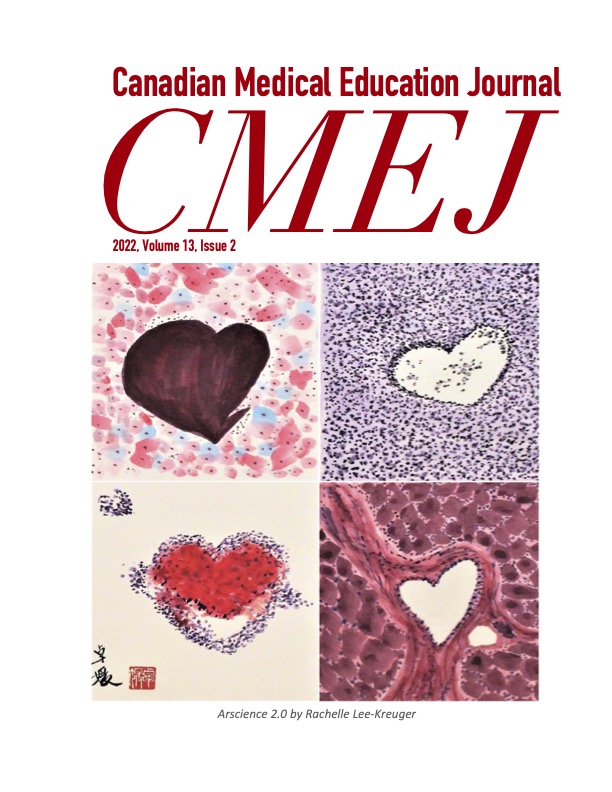Multi-source feedback following simulated resuscitation scenarios: a qualitative study
DOI:
https://doi.org/10.36834/cmej.72387Abstract
Background: The direct observation and assessment of learners’ resuscitation skills by an attending physician is challenging due to the unpredictable and time-sensitive nature of these events. Multisource feedback (MSF) may address this challenge and improve the quality of assessments provided to learners. We aimed to describe the similarities and differences in the assessment rationale of attending physicians, registered nurses, and resident peers in the context of a simulation-based resuscitation curriculum.
Methods: We conducted a qualitative content analysis of narrative MSF of medical residents in their first postgraduate year of training who were participating in a simulation-based resuscitation course at two Canadian institutions. Assessments included an entrustment score and narrative comments from attending physicians, registered nurses, and resident peers in addition to self-assessment. Narrative comments were transcribed and analyzed thematically using a constant comparative method.
Results: All 87 residents (100%) participating in the 2017-2018 course provided consent. A total of 223 assessments were included in our analysis. Four themes emerged from the narrative data: 1) Communication, 2) Leadership, 3) Demeanor, and 4) Medical Expert. Relative to other assessor groups, feedback from nurses focused on patient-centred care and communication while attending physicians focused on the medical expert theme. Peer feedback was the most positive. Self-assessments included comments within each of the four themes.
Conclusions: In the context of a simulation-based resuscitation curriculum, MSF provided learners with different perspectives in their narrative assessment rationale and may offer a more holistic assessment of resuscitation skills within a competency-based medical education (CBME) program of assessment.
Downloads
Published
Issue
Section
License
Copyright (c) 2019 Timothy Chaplin, Heather Braund, Adam Szulewski, Nancy Dalgarno, Rylan Egan, Brent Thoma

This work is licensed under a Creative Commons Attribution-NonCommercial-NoDerivatives 4.0 International License.
Submission of an original manuscript to the Canadian Medical Education Journal will be taken to mean that it represents original work not previously published, that it is not being considered elsewhere for publication. If accepted for publication, it will be published online and it will not be published elsewhere in the same form, for commercial purposes, in any language, without the consent of the publisher.
Authors who publish in the Canadian Medical Education Journal agree to release their articles under the Creative Commons Attribution-Noncommercial-No Derivative Works 4.0 Canada Licence. This licence allows anyone to copy and distribute the article for non-commercial purposes provided that appropriate attribution is given. For details of the rights an author grants users of their work, please see the licence summary and the full licence.











